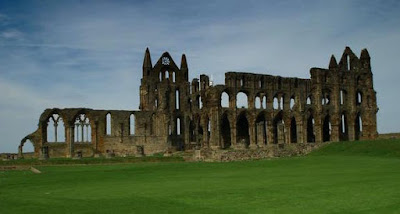Who is an Anglican and what does he believe? Such question have, in the past, simply not arisen for substitution instances such as 'African', 'Roman Catholic', 'Female', etc. But now, it's all up for grabs. Our problem is the world's problem.
Here's a shot. An Anglican is a follower of Christ who holds simultaneously to all of the following, in a kind of dynamic tension, as forming collectively an irreducible sine qua non:
(a) the public reading of the Scriptures in a language understood by the people and instruction of the whole people of God in the scriptural faith by means of sermons and catechisms;
EVANGELICAL: The Holy Scriptures, as containing all things necessary to salvation [but not, of course, everything to be found in the world, including dinosaurs and Kings of England];
(b) the use of the two sacraments ordained by Christ, Baptism with water in the threefold name, and Holy Communion with bread and wine and explicit intention to obey our Lord's command;
SACRAMENTAL: The Sacraments of Baptism and Holy Communion [which is not to exclude other sacraments, sacramentals, and rites but only to give proper precedence to the two Dominical sacraments as our models and for practice];
(c) the use of forms of episcopal ordination to each of the three orders by prayer with the laying-on of hands;
EPISCOPAL: The historic episcopate, locally adapted, and the three holy orders [acolytes ('epistollers'), lectors ('clerks'), and deaconesses being 'lay ministries', with the last strictly pastoral and non-liturgical];
(d) the public recitation and teaching of the Apostles' and Nicene Creeds; and
CREEDAL: The Creeds (specifically, the Apostles' and Nicene Creeds), as the sufficient statement of Christian faith [also including and emphasizing their traditional theological expressions in the Thirty-Nine Articles]; and
(e) the use of other liturgical expressions of unity in faith and life by which the whole people of God is nurtured and upheld, with continuing awareness of ecumenical liturgical developments.
LITURGICAL: The rites of the received Prayer Book, deriving from two main models, Scotland 1637 and England 1662, locally adapted [with the traditional faith and practice completely enshrined therein] and the associated heritage of historic lectionary, minor propers, and ceremonial deriving from the Sarum use.
The Quadrilateral was lacking an important side: we need a Pentagon, instead. "Papists" (a completely made-up enemy) could dispense with (a) and (e); "Puritans" (likewise) with (c) and (e). And this certainly isn't the all: it is only the without which not, without which empty.


No comments:
Post a Comment